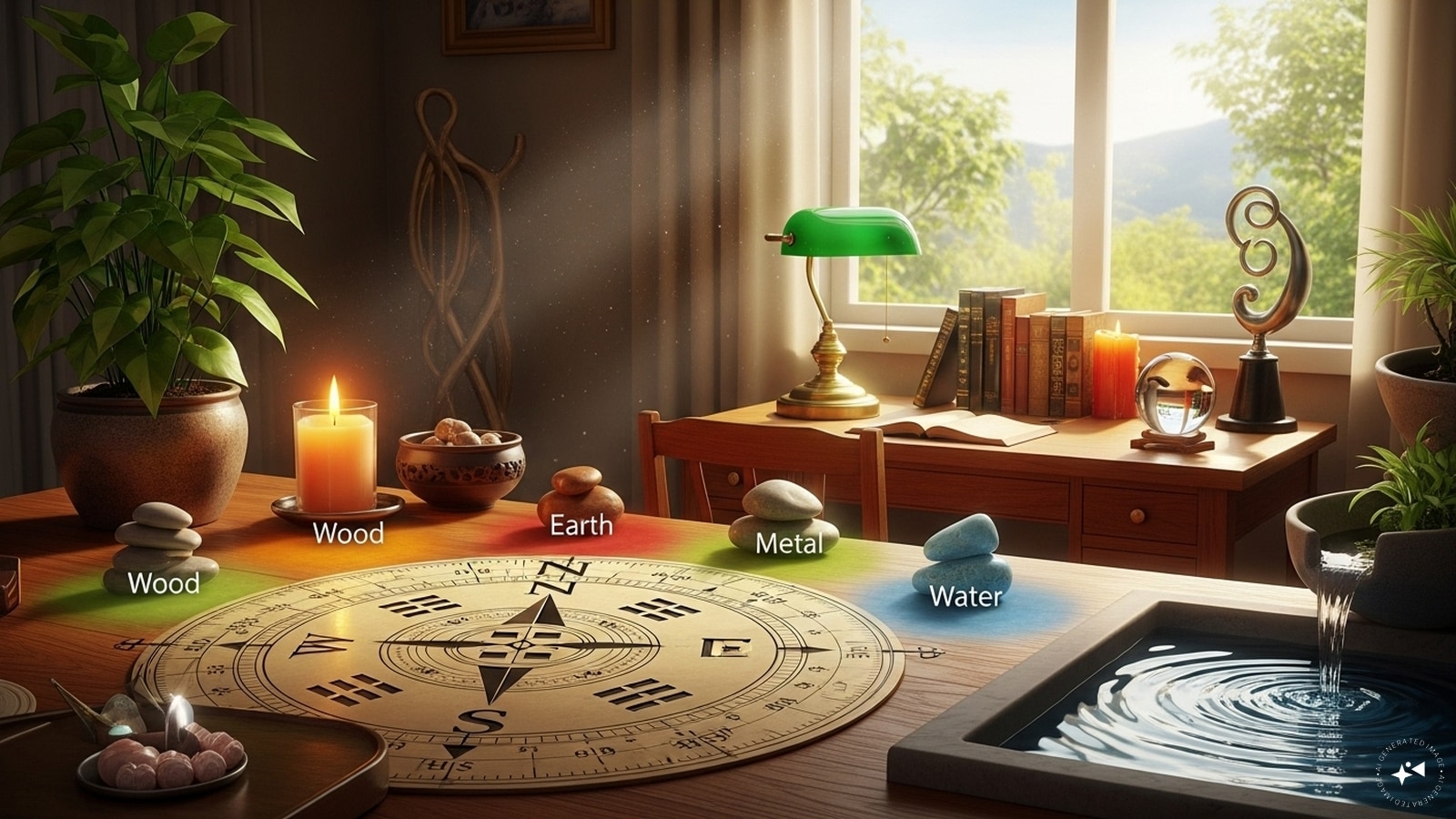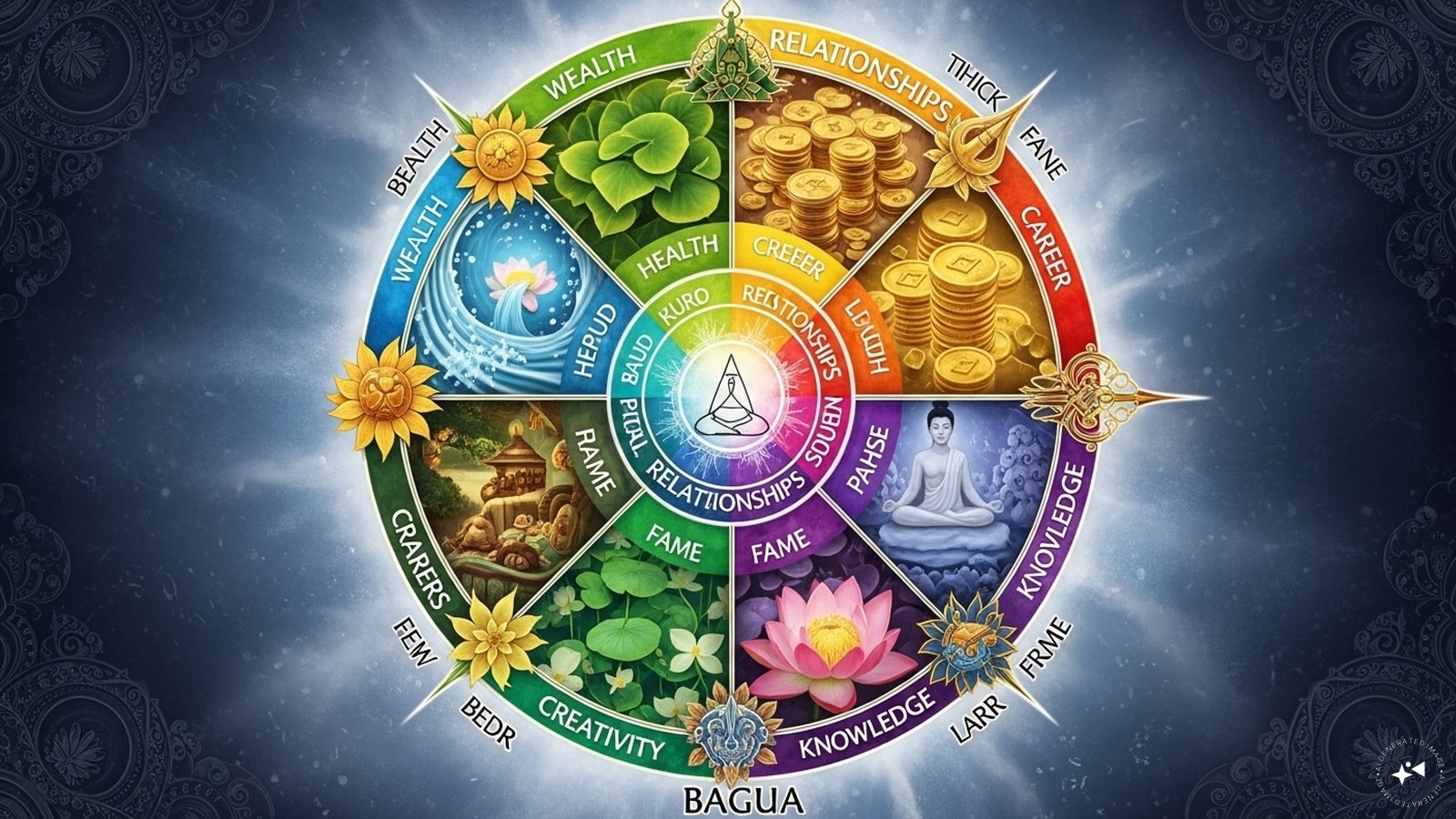
Feng Shui is an ancient Chinese discipline that works to balance the flow of positive energy in life. It believes that the flow of energy (chi or ki) in our environment has a profound impact on our well-being, prosperity, and peace. The purpose of Feng Shui is to channel this energy through the design and arrangement of homes, offices, and other spaces, creating positive life changes. (Image: AI-Generated)

Basic Principles of Feng Shui: The principles of Feng Shui are very detailed and complex. (Image: AI-Generated)

Chi: Chi, or ki, is the life energy that exists in everything. It holds a very important place in Feng Shui, and it is believed that if Chi flows properly, happiness and prosperity will come. (Image: AI-Generated)

Yin and Yang: This principle symbolizes the balance of two opposite forces. The balance of Yin (soft, cool, and dark) and Yang (warm, bright, and active) helps maintain mental and physical balance in life. When these two forces are properly combined, peace and stability prevail in life. (Image: AI-Generated)

Five Elements: Five elements are important in Feng Shui – wood, fire, earth, metal, and water. The balance and proper use of these elements are crucial to the principles of Feng Shui. Using these elements correctly increases the flow of positive energy in a home or space. (Image: AI-Generated)

Bagua: The Bagua is an eight-angled circle, with each angle representing a specific area or aspect, such as wealth, health, relationships, or career. Using the Bagua, any space is energetically organized to bring balance and prosperity to various areas of life. (Image: AI-Generated)

Benefits of Feng Shui: Practicing Feng Shui can have many benefits. Here are some of the main benefits. (Image: AI-Generated)

Wealth and Prosperity: Applying Feng Shui correctly can increase the flow of money into a home or office. For example, according to the Bagua, using the right elements and colors in the wealth area (Southeast) can improve financial well-being. (Image: AI-Generated)

Health and Well-Being: Feng Shui also aims to promote physical and mental health. If positive energy flows properly in the home, it has a positive impact on the health and well-being of all family members. (Image: AI-Generated)

Improving Relationships: Feng Shui also influences relationships. For example, placing the right colors, elements, and objects in the relationship area of the Bagua can bring harmony to love and relationships. (Image: AI-Generated)

Motivation and Success: Feng Shui principles, if followed in the office or workplace, can enhance success and motivation in work life. Working in the right direction increases mental clarity and energy flow. (Image: AI-Generated)

Important Elements of Feng Shui and Their Uses (Image: AI-Generated)

Color: Color plays an important role in Feng Shui. For example, green is seen as the Wood element, which promotes prosperity and growth. Red is considered the Fire element, which increases energy and excitement. White and gray are used as the Metal element, which helps with clarity and direction. (Image: AI-Generated)

Mirrors: Mirrors are used in Feng Shui to enhance the flow of Chi. However, it is essential to place the mirror in the right direction, as placing it in the wrong location can create negative energy. (Image: AI-Generated)

Plants: Plants are sources of natural energy and are used to enhance positive energy in Feng Shui. Keeping green and fresh plants in the home increases freshness and vitality. (Image: AI-Generated)

Water: The element of water is associated with wealth and prosperity in Feng Shui. Using water wisely at home or in the office, such as having a water fountain, can have a positive impact. (Image: AI-Generated)






